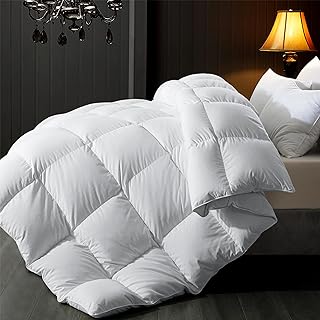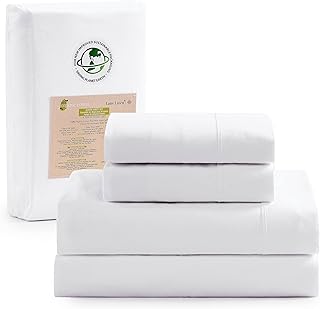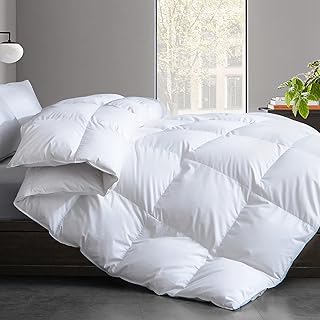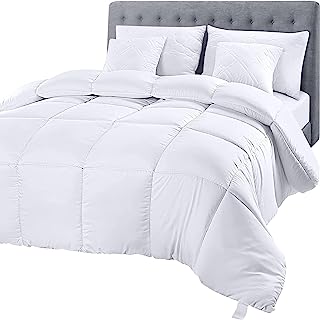5 important factors worth considering when looking for the best hypoallergenic pillows
When looking for a good pillow for better sleep, it’s important to consider hypoallergenic pillows. These pillows are great for comfort and can help with your health. Choosing the right hypoallergenic pillow can make a big difference in how well you sleep. You’ll need to think about things like what the pillow is made of, how well it lets air flow through, and how much support it provides. It might seem like a lot to think about, but these factors are important for making sure you have a restful night without allergies or discomfort. Thinking about these things can help you find a pillow that will give you quality sleep and make you feel good physically and personally.
See our guide to the best hypoallergenic pillows.
Material
When choosing hypoallergenic pillows, it’s important to think about comfort and effectiveness. Natural materials like organic cotton or bamboo feel nice and help prevent allergens from building up. Going for eco-friendly options not only improves sleep but also helps the environment. Synthetic materials, like microfiber, are a cheaper choice that still provides quality. But be careful of chemical treatments that might cause allergies in some people. Finding a balance between comfort, sustainability, and health is key when picking hypoallergenic pillows.
Knowing your own preferences and sensitivities is crucial when selecting the right material for hypoallergenic pillows. Memory foam offers great support and pressure relief, but it might not be good for people who are sensitive to odors. Trying different options like latex foam can meet different needs, giving a hypoallergenic choice that is both comfortable and healthy. By exploring a variety of materials, individuals can pick the best option for them, ensuring a good night’s sleep in an allergen-free environment. In the world of comfortable and functional pillows, the material used is important for overall well-being and quality of sleep.
Firmness
When choosing a hypoallergenic pillow, it’s important to consider how firm or soft it is. While some people prioritize softness for immediate comfort, firmness is key for providing good support for a restful night’s sleep. A pillow that is too soft may not keep your neck and spine aligned properly, leading to discomfort and poor sleep. On the other hand, a pillow that is too firm could put too much pressure on your neck or back, especially if you have sensitive issues in those areas. Finding the right balance of firmness is crucial for getting the support you need while also being comfortable.
The firmness of a hypoallergenic pillow can also affect how long it lasts and how well it holds its shape. A pillow that keeps its firmness over time will give you consistent support and be a more sustainable option. It’s important to think about durability when buying a hypoallergenic pillow, as a good balance of firmness and longevity can be a more cost-effective and eco-friendly choice. By thinking about the firmness of a hypoallergenic pillow, along with other features, you can choose one that will help you stay comfortable and healthy.
Size
Size is a crucial factor when choosing a hypoallergenic pillow. The dimensions of the pillow can make a big difference in how well you sleep. It’s important to pick a size that fits your body and how you sleep – whether you sleep on your side, back, or stomach. This can help your body stay in the right position and reduce pressure points.
Not only does the right pillow size affect your comfort, but it also adds to the look of your bedroom. A well-fitted pillow can make your bed look more balanced and inviting. Matching the size of the pillow to your bed and mattress can improve the overall appearance of your sleeping space. The size of your hypoallergenic pillow can make your bedroom feel more cozy and reflect your personal style.
Choosing the right size pillow is more than just practical – it can change how you relax and enjoy your bedroom. Size matters when it comes to selecting a hypoallergenic pillow, so make sure you consider how it will fit with your body and decor.
Allergen protection
When choosing hypoallergenic pillows for protection against allergens, it’s important to consider quality and credibility. Look beyond marketing and focus on the materials used. Pillows made with tightly woven fabrics and advanced allergen-barrier technologies can help protect against dust mites, pet dander, and pollen. Check certifications and testing processes to ensure the product is effective in providing a hypoallergenic environment for a good night’s sleep.
It’s also important to understand your own sensitivities and preferences. Some people may prefer organic cotton or bamboo fabrics, while others may prefer memory foam. Allergen protection is personal, so it’s important to find a pillow that meets your needs. By doing research and trusting your instincts, you can avoid false claims and choose a hypoallergenic pillow that not only helps you sleep well, but also breathe easier.
Washability
Choosing hypoallergenic pillows that can be easily washed is important for comfort and cleanliness. Being able to clean these pillows effectively can help prevent allergens like dust mites and pollen from causing problems for people with allergies.
It is essential to consider washability when selecting pillows to create a healthy sleep environment. Pillows that are easy to wash not only last longer but also help manage allergens better. By making sure pillows can be cleaned regularly, individuals can reduce the risk of respiratory issues and ensure a fresh sleeping surface.
In addition, washable hypoallergenic pillows make life easier and more convenient for users. Investing in pillows that can withstand frequent washing without losing quality means people can have a clean and sanitized place to sleep. This not only encourages better rest but also prevents bacteria growth and unpleasant odors in pillows.
In a world where keeping things clean is crucial, the washability of hypoallergenic pillows plays a key role in promoting a healthy and restful lifestyle. By prioritizing cleanliness and allergen control, individuals can create a sleep environment that supports their well-being.
Conclusion
In a world where allergies are common, hypoallergenic pillows are seen as the unsung heroes of a good night’s sleep. These special pillows offer a safe space for people who are sensitive to things in the air. They not only make you feel cozy, but also help you sleep better. Hypoallergenic pillows keep irritants away and show how smart design can improve your health. They are part of a new focus on self-care and feeling good, setting a high bar for comfort that puts your health first without sacrificing luxury. Want more info on recorder for stuffed animals, check the best recorder for stuffed animals.



